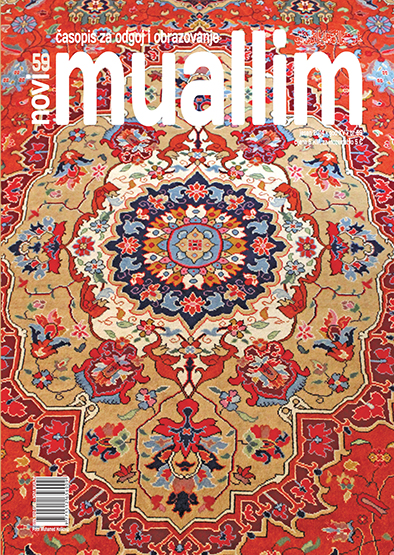CIVIL LAW REGULATIONS IN THE QUR‘AN AND THE LAW OF BOSNIA AND HERZEGOVINA
DOI:
https://doi.org/10.26340/muallim.v15i59.216Keywords:
the Qur’an, the Law of Bosnia and Herzegovina, testament, Sharia marriage, financial support, the principle of conscientiousness and righteousness the principles of legal proceduresAbstract
UDK 348. 97:340(497.6)
The article points out the similarities between legal regulations of the Qur’an and the legal system of Bosnia and Herzegovina, i.e. the Entities regulations considering the fact that some law branches are in competence of the Entities of Bosnia and Herzegovina. The topic of the article is the civil law regulations, wherein the similarities have been pointed out between inheritance, family, contract and procedural law. Within the civil procedural law the law proceedings have been discussed. The Qur’anic regulations that we used in this comparison are clearly normative for the certain situations, whilst others are indirectly established as a legal regulation. The example of the latter pertains to the legal procedure wherein from the real situation, from the decision of Dawood a.s. concerning the request of litigators, a legal procedure is deduced. Particular similarities within the inheritance law are reflected in the eligibility for inheriting, primacy of the testament over the law and the prohibition of contracts in inheritance. Within the framework of the family law it is interesting that marital prohibitions on the bases of consanguinity is defined in much higher degree in our law, whereas the basic principles in the law of obligations and the legal procedure are common in both the legal systems. However, in the case of the compensation of non-material damage for a murder, the Qur’an prescribes double compensation, keeping in mind that the basic form of non-material damage is identical.
Downloads
Published
How to Cite
Issue
Section
License
Naknada:
a. Časopis ne naplaćuje naknadu za obradu članaka (APC) i naknadu za podnošenje članaka.
Autori koji objavljuju u ovom časopisu pristaju na sljedeće uvijete:
- Autori zadržavaju autorska prava i pružaju časopisu pravo prvog objavljivanja, pri čemu će rad jednu godinu po objavljivanju biti podložan licenci Creative Commons imenovanje koja omogućuje drugima da dijele rad uz uvijet navođenja autorstva i izvornog objavljivanja u ovom časopisu.
- Autori mogu izraditi zasebne, ugovorne aranžmane za ne-ekskluzivnu distribuciju rada objavljenog u časopisu (npr. postavljanje u institucionalni repozitorij ili objavljivanje u knjizi), uz navođenje da je rad izvorno objavljen u ovom časopisu.


